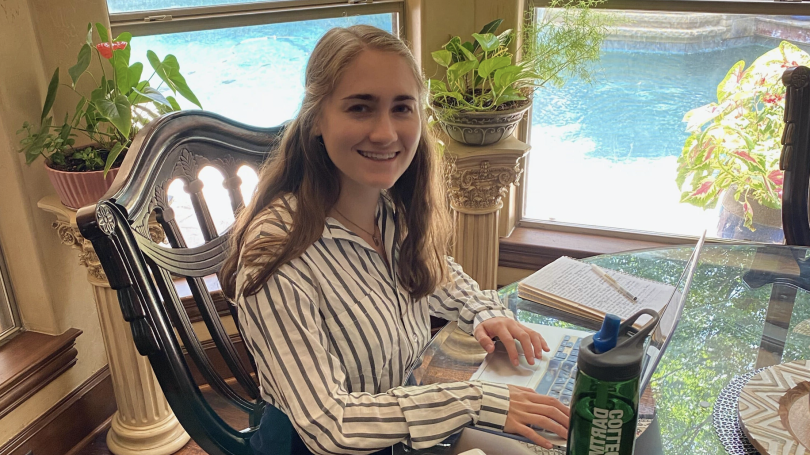
- Public Policy
- Leadership
- Funding
- News & Events
- About the Center
Back to Top Nav
Back to Top Nav
Back to Top Nav
Back to Top Nav
This summer I interned remotely for a gubernatorial campaign in New Hampshire. The organizational structure was fluid and grassroots, offering ample opportunities to try my hand at many different aspects of campaigning. Over the course of the internship, I contributed to the finance team, digital team, communications team, and policy team in varying levels. My work for the finance team was primarily donor research and I researched climate, voting rights, and marijuana policy for the policy team. My contributions to these teams were more limited and infrequent. The bulk of my responsibilities supported the digital and communication teams. For digital, I curated and posted content for the candidate’s social media platforms, helping manage his digital presence and filter through and analyze engagement. I also contributed to the strategy development to boost engagement and turn engagement into votes and dollars. In addition, I took the initiative to create and manage an account to emphasize the candidate’s support for youth issues in an effort to grow the candidate’s young voter base. For communications, I planned, drafted and sent press releases and emails. In addition, I managed a team of eight interns that recruited supporters of the candidate to write and submit letters-to-the-editor to their local newspapers. For the first month of my internship, I participated in recruiting supporters for this communications effort as well. Finally, I also offered general support for the campaign, attending virtual events, preparing questions for debates, and creating, cleaning and updating campaign data bases and spreadsheets.
My experience interning for the Volinsky for NH campaign was my most fruitful processional experience in my life thus far. I am participating in a mentorship program through the Tuck School of Business, which pairs under graduates with a Tuck student who will serve as a mentor for professional development endeavors. One of the best pieces of advice I have received from my Tuck mentor so far is that the people I work for in my first few jobs post-graduation are some of the most important factors in my career trajectory. My experience with the campaign resoundingly supported my mentor’s advice. My campaign manager, the candidate, and the rest of the campaign staff are all kind people, insightful colleagues, and purposeful supervisors. Not only did their welcoming demeanor make it easy to insert myself into the campaign team, their willingness to offer constructive feedback and their consistent inquiries into my satisfaction with my work load in terms of type and quantity empowered me to become a better colleague and develop the skills and gain the experience I desired. In addition, the campaign manager and the candidate hosted a professional development session for all campaign interns, allowing us to ask any questions we had about their professional and academic careers and parse them for advice related to our own ambitions and interests. Between the experiences of the campaign manager and the candidate, many of my questions about my potential future paths were answered. As a result, I know feel more empowered to make the big decisions facing me in the coming years about the professional and potential academic pursuits I am considering. My boost in confidence is also supported by the insistence of nearly all my colleagues that I was welcome to reach out to them at any time for advice or any other professional help. Yet the greatest benefit of working with such a fantastic and generous team was that the energizing team atmosphere is a driving contributor to my positive outlook on my experience with the campaign.
The Rockefeller Internships Program has funding for Dartmouth undergraduate students to help defray the cost of living expenses associated with a full-time, unpaid, leave-term internships in the fields of public policy, public affairs, and social entrepreneurship.